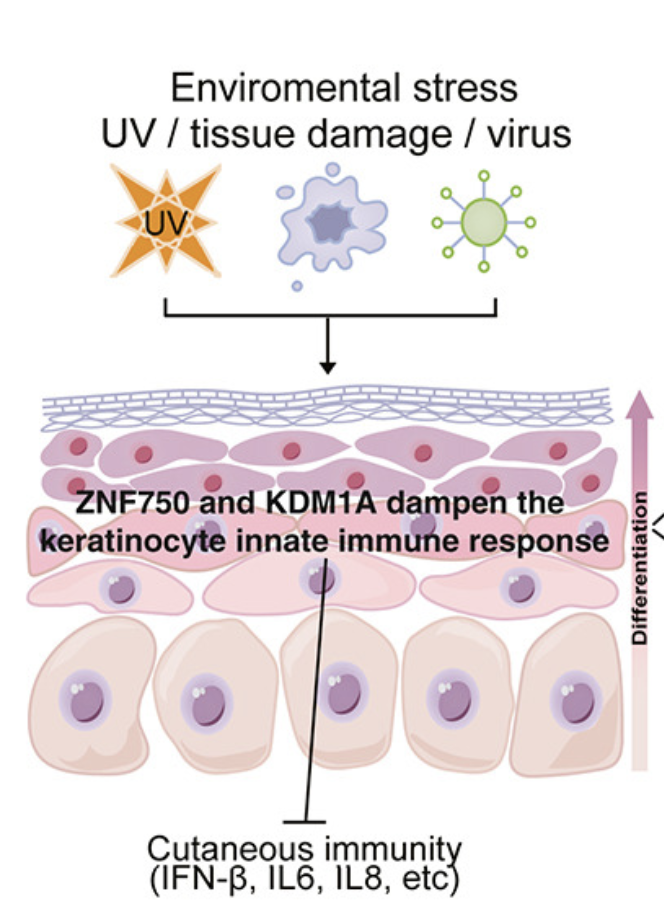
Skin barrier protein also protects against inflammation

@ Press Release from University of California – San Diego
Researchers at University of California San Diego School of Medicine have identified a new mechanism underlying inflammatory skin diseases, such as psoriasis and seborrheic dermatitis. They found that a protein essential in forming the skin’s protective barrier (ZNF750) also plays a role in controlling inflammation in skin cells, shedding light on why some people are more susceptible to inflammatory skin diseases than others. The study paves the way for more effective and personalized therapies for these debilitating diseases and also offers broader insights into the molecular biology of skin cells.
The study published on September 30 in Immunity and was led by George Sen, Ph.D., professor in the Departments of Dermatology and Cellular and Molecular Medicine and chief of the Division of Epithelial Biology at UC San Diego School of Medicine.
The lncRNA SNHG26 drives the inflammatory-to-proliferative state transition of keratinocyte progenitor cells during wound healing
Li, D., Liu, Z., Zhang, L. et al. The lncRNA SNHG26 drives the inflammatory-to-proliferative state transition of keratinocyte progenitor cells during wound healing. Nat Commun 15, 8637 (2024). https://doi.org/10.1038/s41467-024-52783-8
